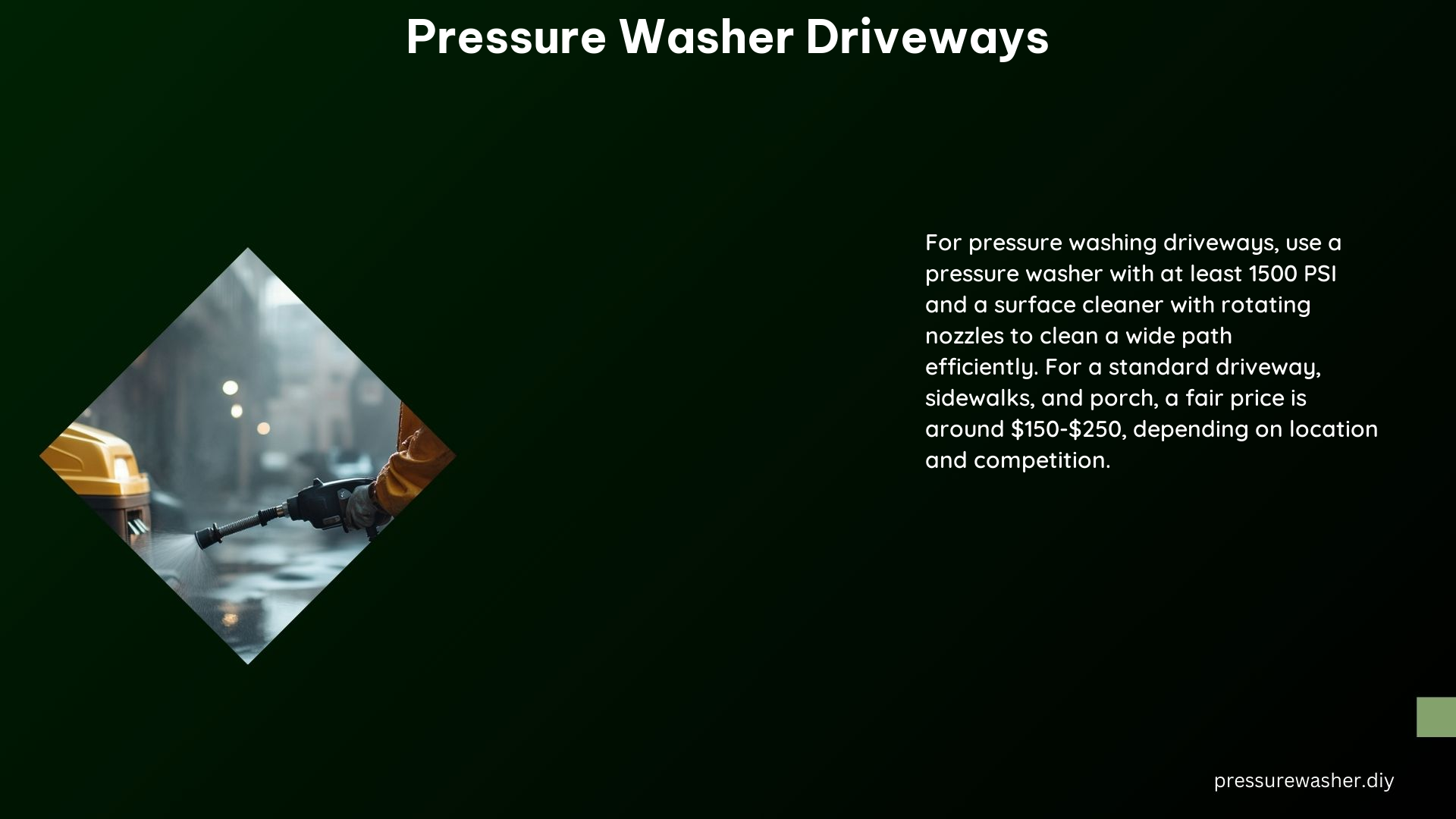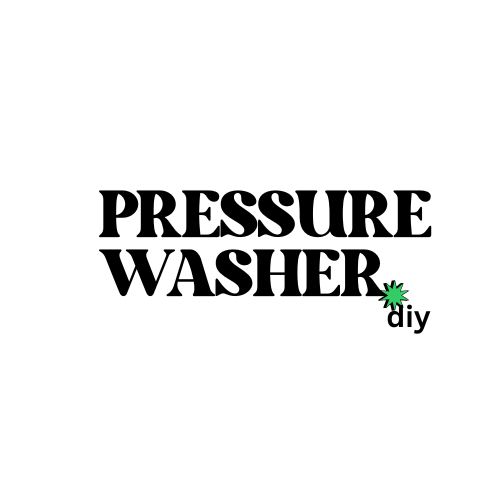Pressure washers are a powerful tool for effectively cleaning driveways, removing stubborn dirt, grime, and stains from concrete and asphalt surfaces. This comprehensive guide will provide you with the necessary information to choose the right pressure washer, prepare your driveway, utilize the appropriate attachments, and follow safety precautions to ensure a successful and efficient cleaning process.
Choosing the Right Pressure Washer
When it comes to pressure washers for driveway cleaning, the key specifications to consider are the PSI (Pounds per Square Inch) and the power source (electric or gas).
PSI (Pounds per Square Inch)
- A minimum of 1500 PSI is recommended for cleaning concrete and asphalt driveways effectively.
- Higher PSI models, such as those with 3000 PSI or more, can clean more efficiently but may require more maintenance and be more expensive.
- The optimal PSI range for driveway cleaning is typically between 2000-3500 PSI, depending on the size and condition of your driveway.
Power Source: Electric vs. Gas
- Electric pressure washers are generally quieter, lighter, and more environmentally friendly, making them suitable for smaller driveway areas.
- Gas-powered pressure washers are more powerful and better suited for larger driveway spaces, but they are typically louder and heavier.
- When choosing between electric and gas, consider the size of your driveway, the level of dirt and grime, and your personal preferences in terms of noise, weight, and environmental impact.
Preparing the Driveway

Before using a pressure washer, it’s essential to properly prepare your driveway to ensure a smooth and effective cleaning process.
Clearing Debris
- Remove any loose objects, such as rocks, twigs, or lawn clippings, from the driveway surface.
- Sweep or blow away any debris to prevent potential damage to the pressure washer or the driveway itself.
Pretreating Stains
- Use concrete cleaners and degreasers to pretreat stubborn stains, such as oil or grease spots, before pressure washing.
- Apply the cleaning solution and let it work on the dirt and grime for the recommended duration, typically 5-10 minutes, before rinsing.
- This pretreatment step can significantly improve the overall cleaning effectiveness.
Pressure Washer Attachments
Pressure washers come with various attachments that can enhance the cleaning process and target specific areas more effectively.
Nozzles
- The yellow nozzle (15° pattern) is suitable for general driveway washing, providing a wider spray pattern.
- The white nozzle (10° pattern) is used for more intense cleaning, focusing the water stream for stubborn stains and heavily soiled areas.
- The black nozzle is a low-pressure tip designed for applying cleaning solutions or detergents.
Surface Cleaners
- Pressure washer surface cleaners with rotating nozzles can significantly boost cleaning efficiency, especially on larger driveway areas.
- These attachments come in different sizes and models to match the PSI rating of your pressure washer, ensuring optimal performance.
- Surface cleaners can cover more area in less time, providing a more uniform and consistent cleaning result.
Safety Precautions
When using a pressure washer for driveway cleaning, it’s crucial to prioritize safety to protect yourself and your property.
Eye and Hand Protection
- Always wear eye protection, such as safety goggles or a face shield, to prevent the high-pressure water or cleaning solution from entering your eyes.
- Wear protective gloves to safeguard your hands from the powerful water stream and any potential chemical exposure.
Broken Concrete and Loose Gravel
- Exercise caution when using a pressure washer around areas with broken concrete or loose gravel, as the high-pressure water can cause further damage or propel debris.
- Adjust the nozzle angle and distance from the surface to minimize the risk of damaging the driveway or causing injury.
Post-Cleaning Maintenance
Maintaining a clean driveway after pressure washing is essential to preserve its appearance and prevent the buildup of new dirt and grime.
Regular Rinsing
- Regularly rinse your driveway, especially during dry spells without rainfall, to help maintain its cleanliness.
- This simple step can extend the duration between deep cleaning sessions and keep your driveway looking its best.
Professional Cleaning
- If your driveway is exceptionally dirty or requires advanced equipment, consider hiring a professional cleaning service.
- Professional pressure washing companies have access to specialized equipment and cleaning solutions that may be more effective for heavily soiled or stubborn stains.
Frequently Asked Questions
Can I use soap when pressure washing my driveway?
Yes, using a mild detergent or soap can help loosen and remove dirt, mold, and grime more effectively before pressure washing. Look for cleaning solutions specifically designed for pressure washers or mix a small amount of dish soap with warm water.
What is the best solution for cleaning concrete driveways?
Premixed pressure washer cleaning solutions formulated for concrete are highly effective. Alternatively, you can create a DIY solution by mixing mild dish soap and warm water, which can work well for smaller stains and light-to-moderate dirt buildup.
Product Recommendations
Hourleey 14″ Pressure Washer Surface Cleaner
- Stainless steel construction for durability
- 4 wheels for easy maneuverability on driveways
- Suitable for cleaning concrete, patios, sidewalks, decks, and driveways
Biswing 14″ Pressure Washer Surface Cleaner
- 1/4″ quick connector for easy attachment to pressure washer
- Includes 2 extension wand attachments for increased reach
- Highly rated for efficient driveway and surface cleaning
